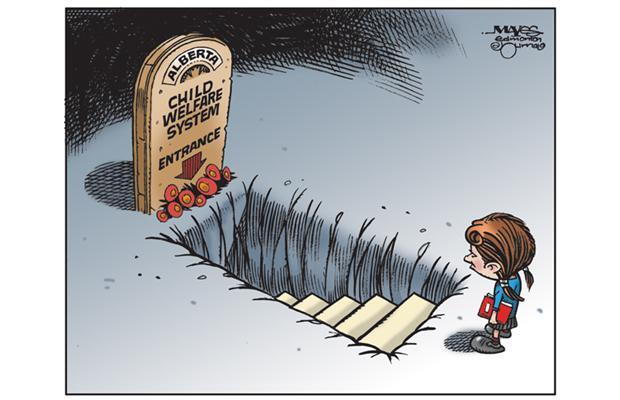The trouble with most of us is that we would rather be ruined by praise than saved by criticism. - Norman Vincent Peale
There has been quite a buzz in Alberta these days regarding recent reports of 145 children who died while in the care of the Alberta Government between 1999 and 2013. To quote this article in the Edmonton Journal:
Of the 145 children who died in the care of the Alberta government between 1999 and 2013, 53 cases merited a public fatality inquiry or a documented in-depth internal review. When those reviews issued recommendations to prevent future deaths, there was no system in place to track them, or to ensure they were implemented.
Now in fairness to the Alberta Government and to all the agencies involved with this story, taking care of children, especially those who have lived difficult lives, has many complexities including but not limited to:
- the creation of effective programs to help these kids and their families
- the coordination of the many groups that work together to help everyone in need
- the addressing of child and family needs that are often specific to each individual
- finding budgets for such programs in fiscally difficult times
- the protection of the the privacy of the families and children who are involved.
And let me be clear …
THERE ARE MANY HEROES IN THE SYSTEM WHO LOOK AFTER THE CHILDREN THAT SOCIETY MAY APPEAR TO HAVE TURNED ITS BACK ON.
However ……..
I believe that the press conference that Minister Hancock held this morning was a tremendous strategic communication mistake.
Here’s why.
I got the feeling as I listened to the press conference that there was an attempt to claim the title of who was the greater victim – the children or the people who help them.
Some quotes:
[Reporting of these problems] "should not be allowed" – Katherine Jones – Alberta Foster Parent Association
“While it [the story] is true, it is hurtful” - Danica Frazer - Alberta Association of Services for Children and Families Executive
“We don't need to traumatize everyone working in the system” - George Ghitan – Hull Services
The Minister also noted several times that the focus of the media should be on hope and the great results produced and not on the problems that have surfaced.
Where does the media fit into all of this?
The media has been hungry to dig into this story but to be honest, this is what they do for a living. When they do it for a cause we agree with, we think they are heroes. When they do it for something we would rather hide, they are villains.
It’s all perspective.
Regardless of the bad news that has surfaced, it is true that the system has thousands of people doing great things for children who really need help and there are many success stories in the system.
Everyone who participates, either offering or receiving help, is a hero in my mind.
But people must never be afraid to embrace the criticism that comes their way or to deflect the criticism by suggesting that they are the victim instead of the real victims … the children and their families.
We must also never get side-tracked from fixing injustices in the world just because someone suggests that to focus on such problems is pessimistic.
Correcting problems is not the role of a pessimist.
It is the role of an optimist.
Such optimists are also realists since they believe they can make the world a better place by acknowledging and tackling the problems as opposed to the pessimists who throw up their hands and give up or the people who would rather pretend the world has no problems.
And besides, most of us have learned that our greatest growth has come when we tackled our problems directly rather than pretend that they are not there or that they are someone else’s fault or responsibility.
I think now is the time for the heroes in our system (front line workers and the Government) to show us how they are going to make the system better instead of implying in official press conferences that there is a fight to claim the title of “greatest victim”.
We already know who the real victims are.
What do you think?
In service and servanthood,
Harry
Addendum
Much has been made of this cartoon:

I’m sure that it has offended many, including Minister Hancock.
But like many things, expressing an opinion as this artist did has a way of applying a cranial defibrillator that we can claim to be offended or hurt by when we should be using our aroused energy to actually find a solution to the problem at-hand.